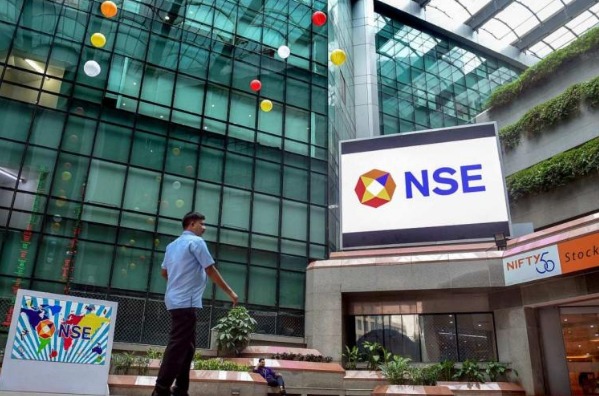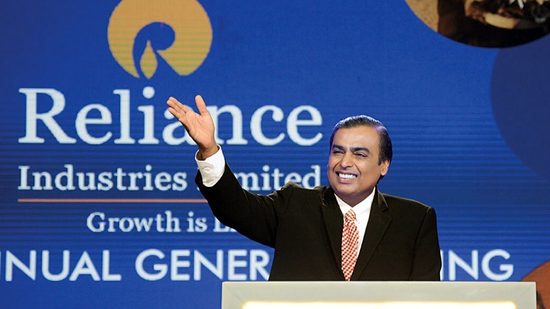
The National Stock Exchange (NSE), the biggest stock exchange in India, seeks to increase the hours of operation for the equity market. Share market trading time, The talk of extending business hours has been circulating for some time, not just now. In reality, the Securities and Exchange Board of India (SEBI), the market regulator, permitted exchanges to extend their trading hours back in 2009.
Also, in October 2018, SEBI permitted extending the trading hours for equity futures contracts until virtually midnight (from 9 a.m. to 11:55 p.m.).
According to a report, the NSE has now begun talking with market participants about extending market trading hours in certain stock categories.
Share market trading time, The schedule of equity markets may now be extended to no later than 9 a.m. to 5 p.m., according to Sebi. They now have a 9 a.m. to 11:55 p.m. window for derivatives. No progress has been made. According to Ashishkumar Chauhan, managing director and chief executive officer of the NSE, who was quoted in the Business Standard article, “we are now working with our members and getting their opinion on what has to be done.”
What is the current trading hour on the NSE?
The current trading hours for the NSE F&O segment and cash segment on NSE and BSE are 9:15 a.m. to 3:30 p.m.
After the pre-opening session, which runs from 9 a.m. to 9:15 a.m., active trading on the NSE and BSE takes place for 6 hours and 15 minutes, starting at 9:15 a.m. and finishing at 3:30 p.m. The NSE wants to extend the closing time to 5 p.m. by an additional one hour and thirty minutes.
Share market trading time, The NSE’s currency derivatives market is open Monday through Friday from 9 a.m. to 5 p.m. Contrarily, commodity markets trade for 15 hours, from 9 am to 11:55 p.m.
How long are major global markets open for trading?
The New York Stock Exchange (NYSE) and the Bombay Stock Exchange (BSE) both have core trading sessions that last six hours and thirty minutes, as compared to the NSE and BSE. In the Eastern Time Zone, they are open from 9:30 a.m. until 4 p.m.
While others have implemented longer trading hours, certain exchanges in America and Europe now operate for up to 23 hours each day.
The Shanghai Composite Index is available for trading for a total of 4 hours, from 9.30 am to 11.30 am, and then from 1 pm to 3 pm.
The Tokyo Stock Exchange is open for a total of five hours, from 9:00 a.m. to 11:30 a.m., and from 12:30 p.m. to 3:00 p.m., Japan Standard Time.
The London Stock Exchange is open for a total of 8 hours, 28 minutes per day, from 8 a.m. to 12 p.m. and from 12:02 p.m. to 4:30 p.m. Greenwich Mean Time.
Why should trading hours be extended?
Share market trading time, Nowadays, the world is a global one. The interconnectedness of economies and the level of global market integration are both rising. The changes in other significant economies and markets in the US and Europe have an impact on the Indian stock market.
Markets with longer trading hours are typically better able to manage the risk brought on by the movement of information around the world.
“The European and American markets extend far beyond the Indian market timings, despite the Asian markets being ahead of the Indian time zone.” Several exchanges in these nations have extended their trading hours, sometimes going as long as 23 hours. This has made it easier for market players in these nations to manage potential risks brought on by the flow of information throughout the world. In a discussion paper on the expansion of market hours for trading on exchanges, SEBI makes this claim.
Share market trading time, According to SEBI, extending domestic exchange transaction timings may allow domestic market participants to benefit from such international information flows.
According to SEBI, the expansion of market hours would likely be a further step in the aim of aligning Indian markets with the best international norms and practices.
According to SEBI, the lengthening of market hours “may aid in the effective assimilation of information and so make Indian markets efficient, benefiting Indian investors.”
The fact that SGX Nifty, a derivative of the Nifty index listed on the Singapore Stock Exchange, begins trading in Singapore earlier is another argument in favor of extending trading hours.
In the SGX, there are two types of contracts with various settlement times:
1. E-SGX QUEST, (T) Settlement on the same day – Hours: 6:30 am to 3:45 pm IST, Monday through Friday.
2. SGX QUEST (T+1): E* Settlement the next day, from 4:45 pm to 10:30 pm IST, Monday through Friday.
These two contracts, according to sgxnifty.org, have various trading hours that allow investors from around the world to transact in SGX even when the market is closed.
Due to the fact that foreign institutional investors (FIIs) frequently purchase Indian futures contracts through SGX Nifty, the early opening of SGX Nifty steals a significant amount of business from India.
How retail investors would be affected by extension of share market trading time ?
Although an extension of trading hours would result in more volume, it is unlikely that it would have any significant effects on stock prices.
The reduction of overnight market risk will be the main advantage of extending trading hours.
Extended share market trading time will enable traders to better manage nighttime market risk, which will draw additional market participants, such as mutual funds and FIIs, to the market.
Retail investors won’t benefit all that much from only a couple of hours’ worth of trading hours expansion, though. According to analysts, extending trading hours until 11:55 p.m. will let positional traders adapt to news flows in the US markets.
“Our markets currently overlap (at least temporarily) with those in Europe and Asia-Pacific but not with those in America. The day the NSE extends trading hours to 11 p.m. will be anticipated by traders. Positional traders will be greatly aided by this in managing their positions in accordance with US markets and lowering overnight market risks, “Dr. Yuvraj Thakker, of Stoxbox, said.
Trading risk will be greatly reduced for investors if domestic market trading hours coincide with those of the US and Singapore exchanges, which will eventually lead to a decrease in market volatility.
Why Nithin Kamath of Zerodha believes that increasing F&O trading hours is not a good idea
Nithin Kamath, CEO of Zerodha, believes the National Stock Exchange (NSE), which is the subject of widespread social media speculation that it plans to expand F&O trading hours, may not be the greatest option and that individual investors may actually lose out as a result of the extension.
On February 20, Kamath said in a series of tweets that while longer trading hours for F&O may indicate that Indian markets are maturing, following P&L for a long time is “difficult” and “tense” and has an impact on life outside of trade. Moreover, active traders lose money, largely as a result of overtrading.”
Extended trading hours “would level the playing field for domestic traders against international traders and are also excellent for capital markets enterprises in terms of income, but I’m conflicted,” Kamath added in the midst of his statement.
The millionaire co-founder of the online brokerage platform from Bengaluru warned: “I’m not convinced if it will ultimately benefit regular investors, while it might increase profits for the capital markets company in the short run.” In the future, this can result in decreased participation and liquidity, which will have an impact on everyone.
The timing of Kamath’s remarks is significant since earlier this month, there were numerous rumours that the NSE was planning to increase market trading hours for both the stock and derivative segments. However, neither the Indian Stock Exchange nor capital market supervisor Securities and Exchange Board of India have made any official disclosures (SEBI).
In contrast, a recent SEBI investigation found the startling statistic that nine out of ten individual traders in the equities F&O market suffered net losses in both the fiscal years 2018–19 and 2021–22. According to SEBI, loss makers typically incurred net trading losses of close to Rs 50,000 during the fiscal year 2021–22. A loss maker’s average absolute net loss was more than 15 times greater than a profit maker’s net profit.
According to the report, there would be significantly more individual traders in the stock F&O market in FY 2021–22 than there were in FY 2018–19, a rise of more than 500 percent. During FY 2021–2022, 98% of individual traders in the equity F&O segment engaged in option trading.
1. What are the NSE and BSE trading hours?
All transactions will occur on a certain day up until 5:15 p.m. and can be reported between 9:00 a.m. and 5:15 p.m. Any trade that was due for reporting by 5:15 pm but was unable to be done so must be reported between 9:00 and 9:15 am the following day.
2. What occurs in the stock market between 9 and 9.15?
What happens during the pre-market session? For instance, the National Stock Exchange’s pre-market session lasts from 9 a.m. to 9.15 a.m. The first eight minutes of these 15 minutes are used for order entry, collecting, alteration, and cancellation.
3. Can you trade 24 hours a day in India?
In India, trading in the stock market is restricted to a certain window of time. These transactions must be carried out by retail consumers through a brokerage firm on weekdays from 9.15 am to 3.30 p.m.
4. Which trading is available 24 hours a day?
Forex trading is possible. Five days a week, twenty-four hours a day.





